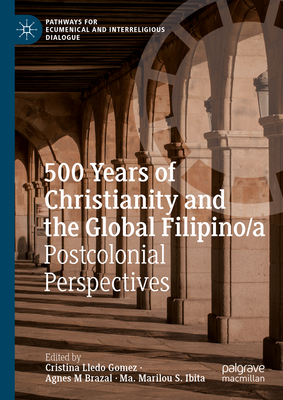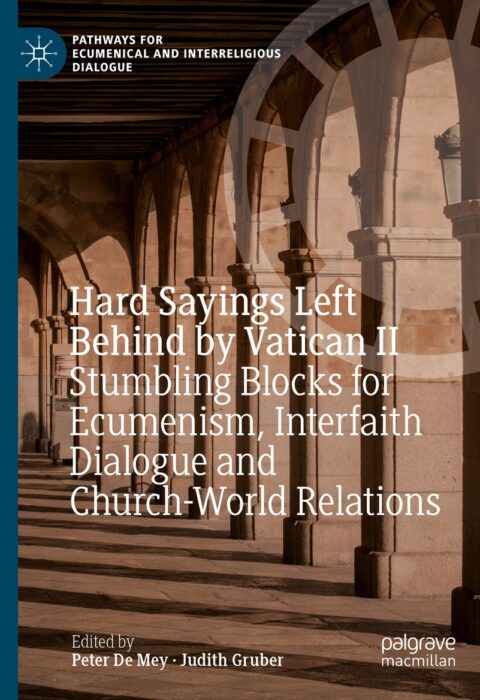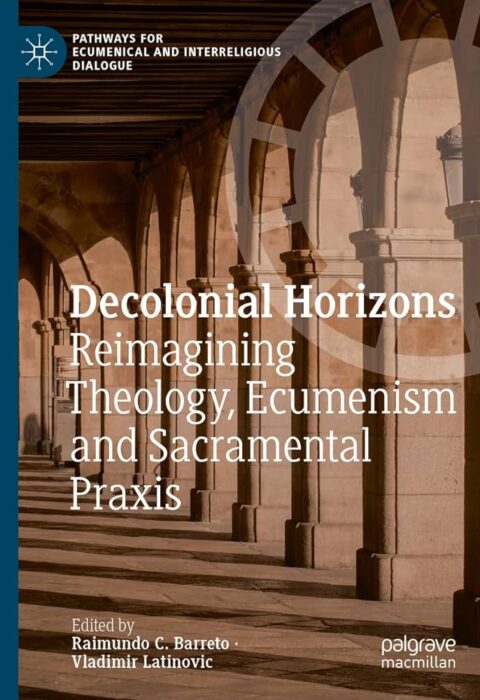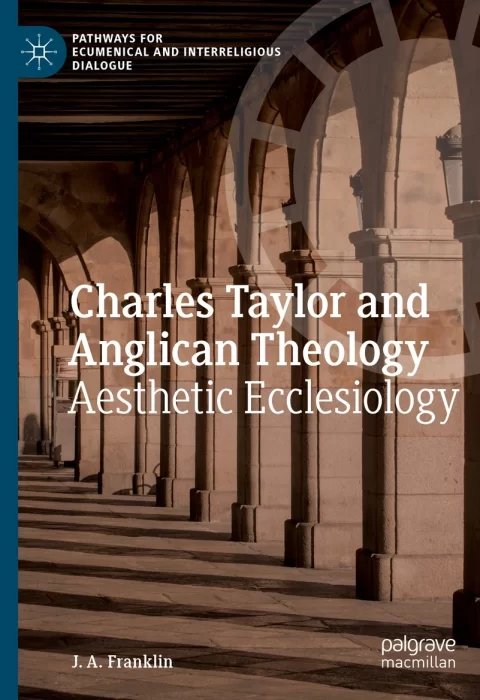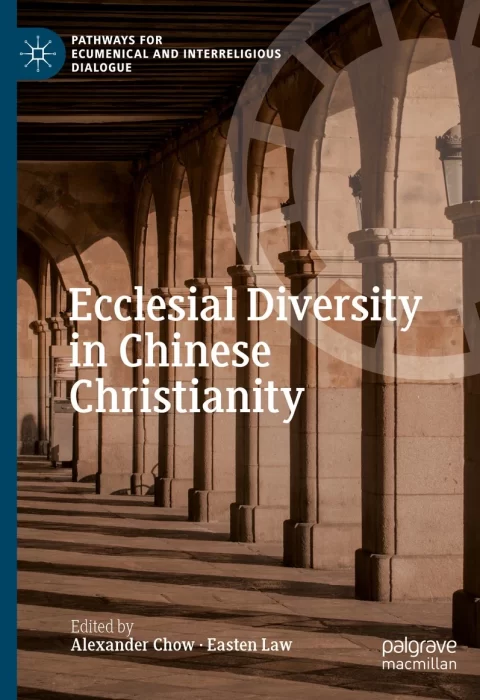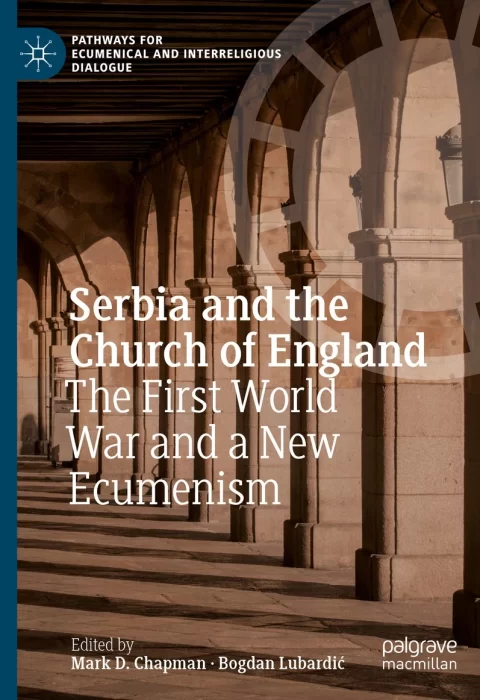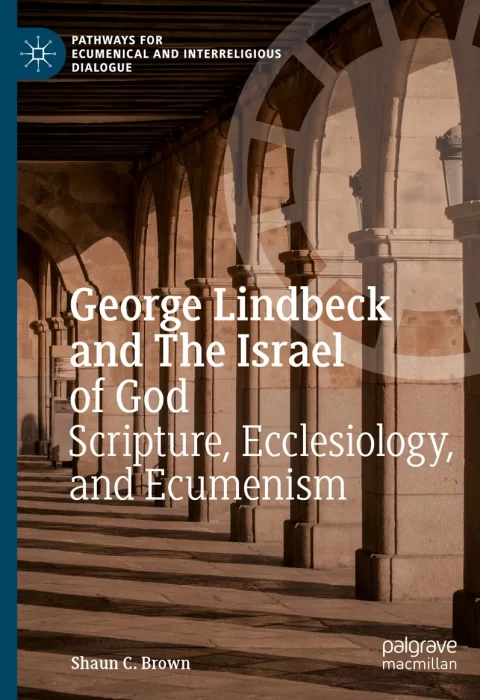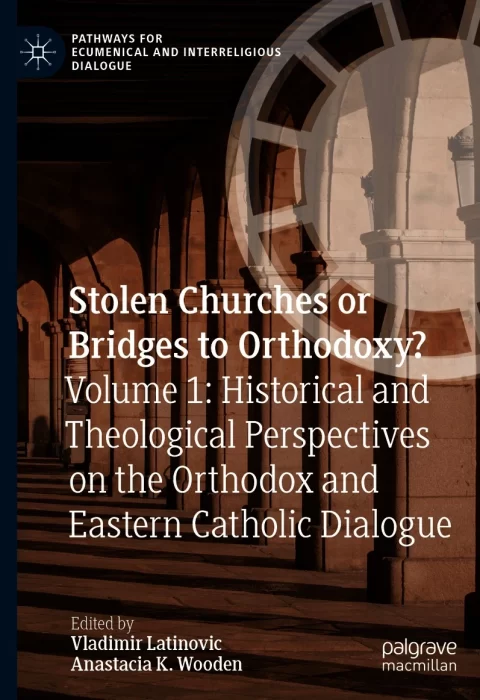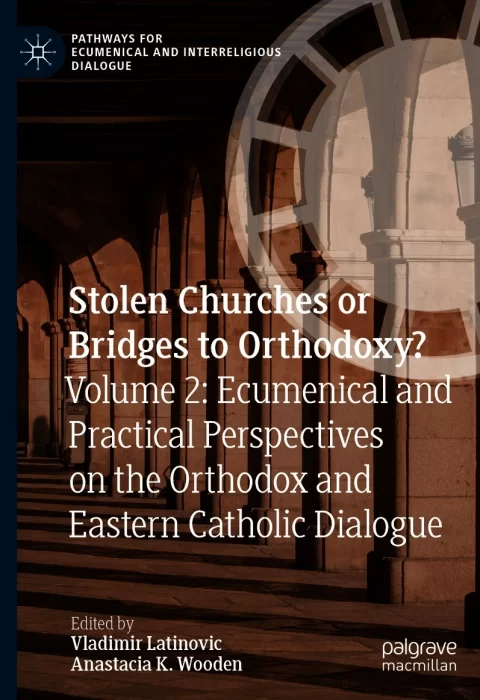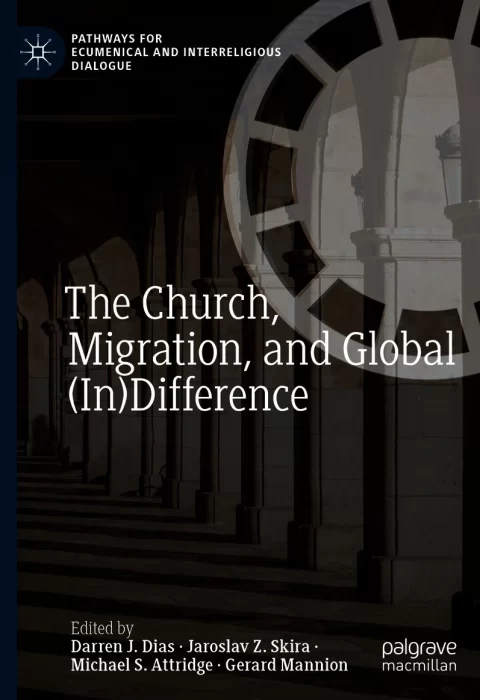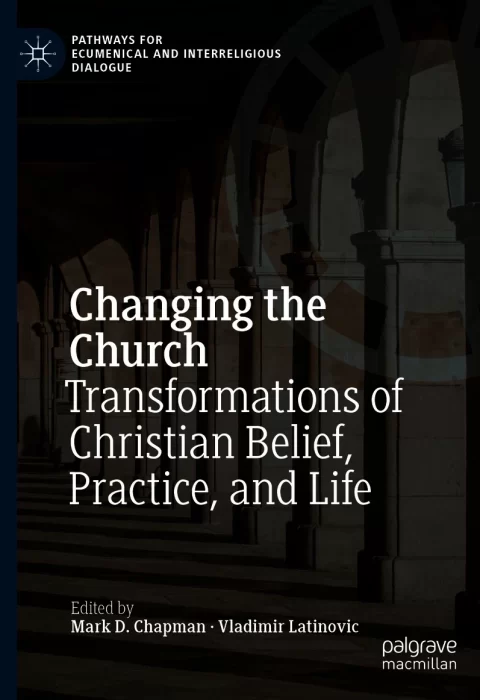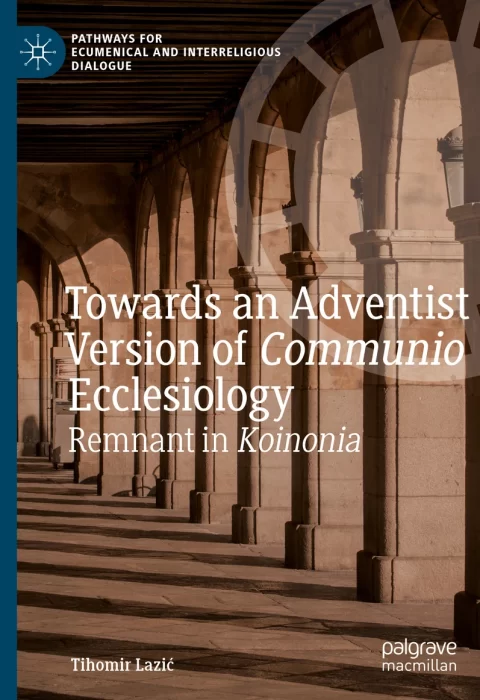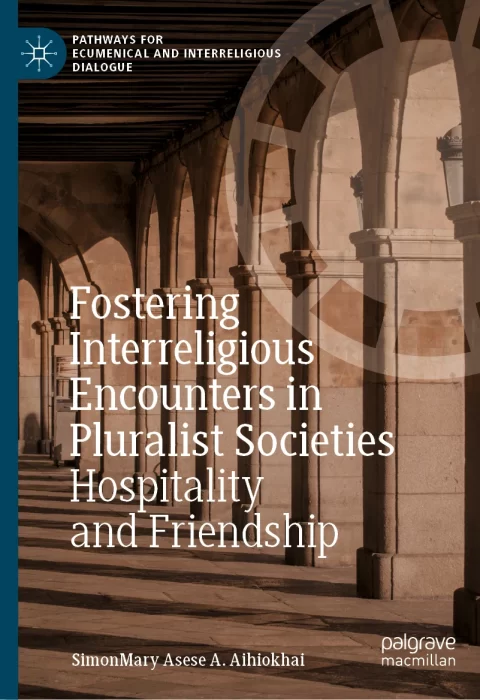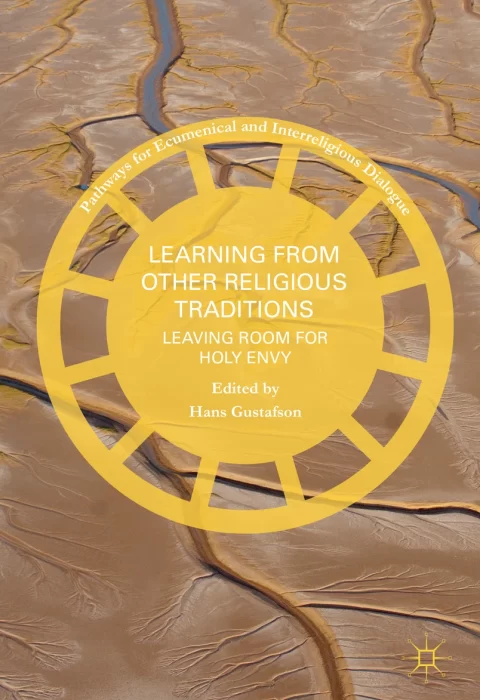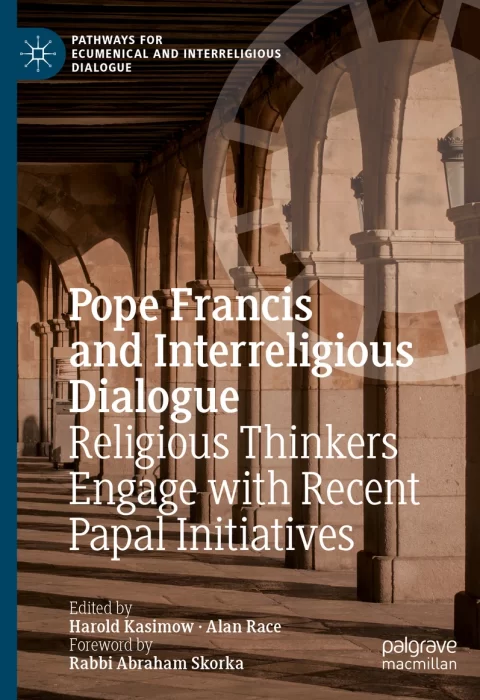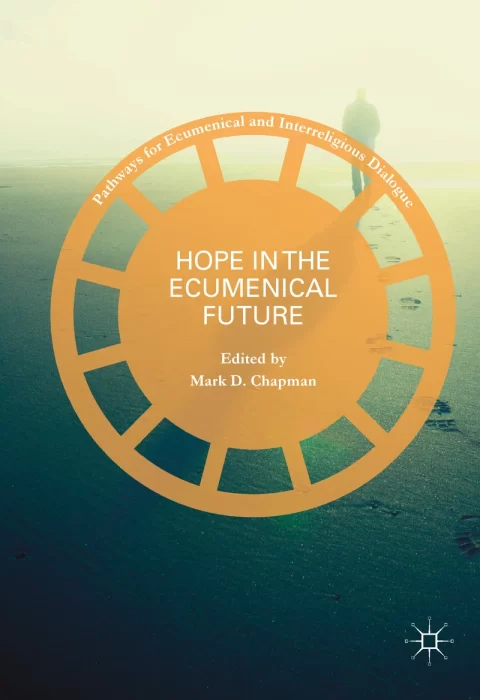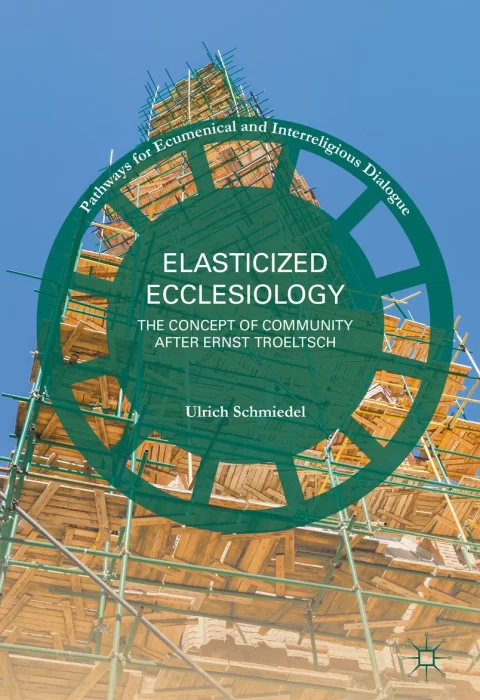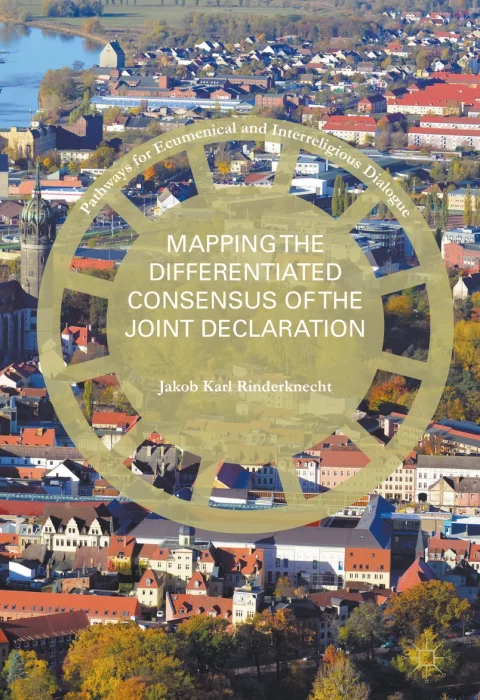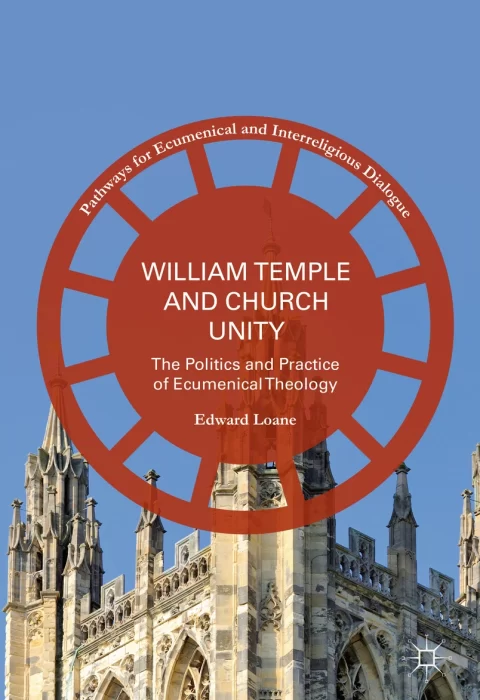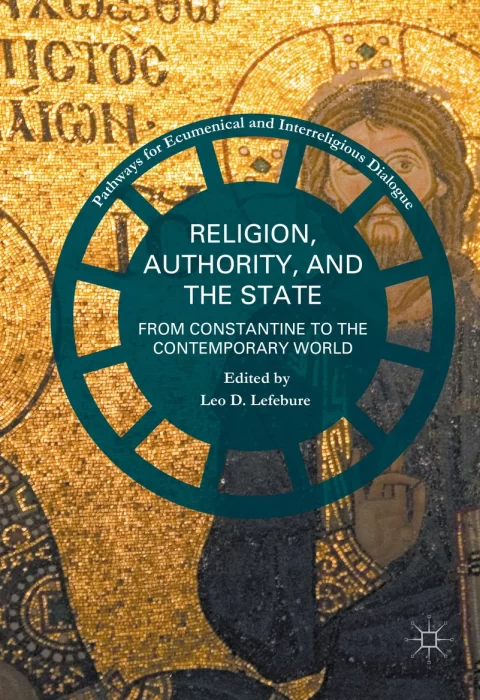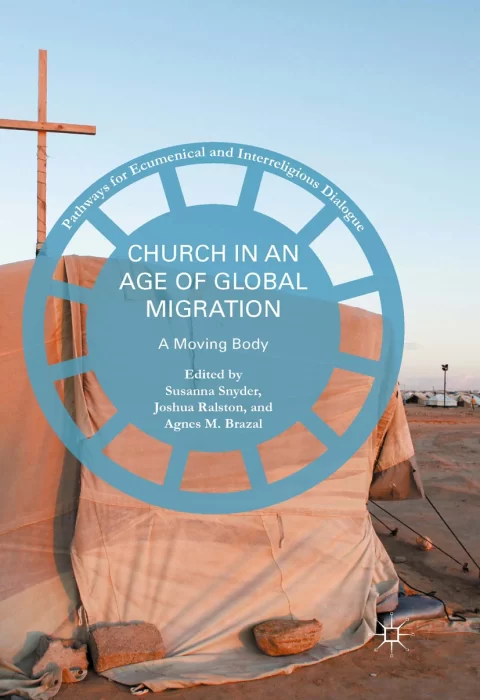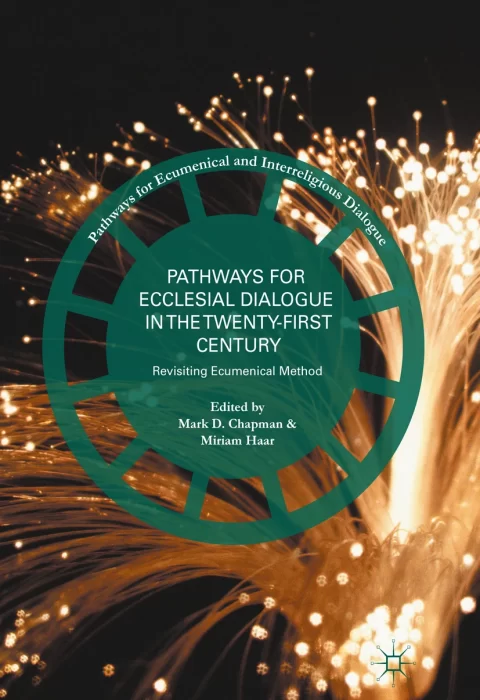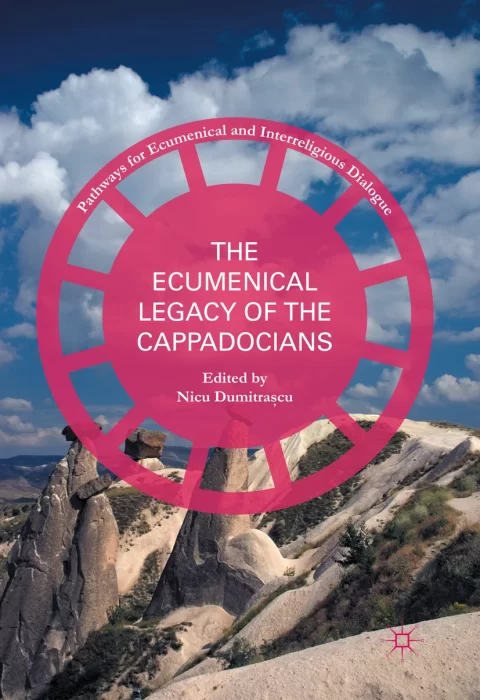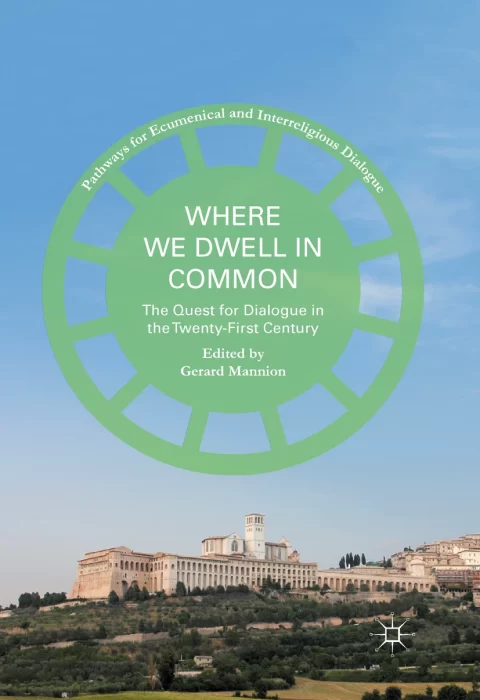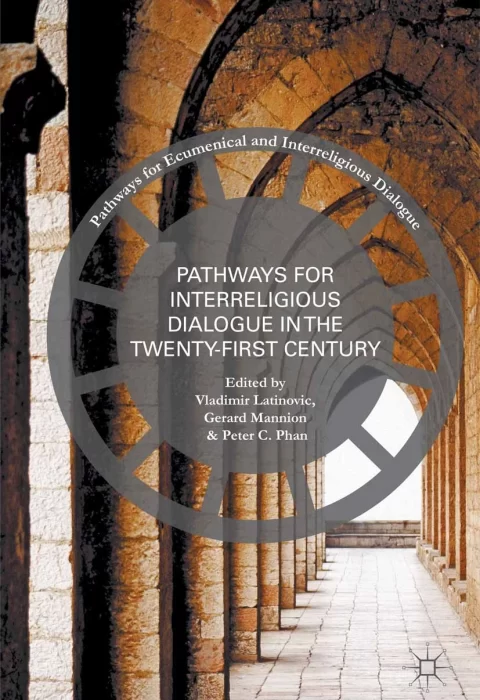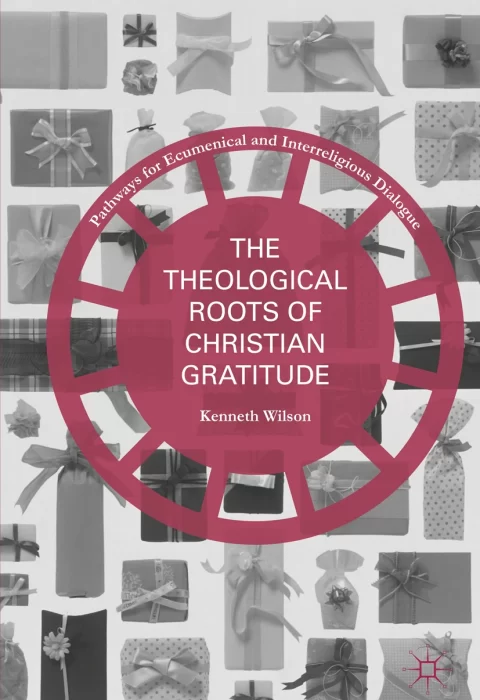
Building on the important work of the Ecclesiological Investigations International Research Network to promote ecumenical and inter-faith encounters and dialogue, the Pathways for Ecumenical and Interreligious Dialogue series publishes scholarship on such engagement in relation to the past, present, and future. It gathers together a richly diverse array of voices in monographs and edited collections that speak to the challenges, aspirations, and elements of ecumenical and interfaith conversation. Through its publications, the series allows for the exploration of new ways, means, and methods of advancing the wider ecumenical cause with renewed energy for the twenty-first century
500 Years of Christianity and the Global Filipino/a
The year 2021 marked the five-hundredth anniversary of Christianity in the Philippines. With over 90% of the Filipin@s (Filipino/as) in the country and more than eight million around the world identifying as Christian, they are a significant force reshaping global Christianity. The fifth centenary called for celebration, reflection, and critique. This book represents the voices of theologians in the Philippines, the United States, Australia, and around the world examining Christianity in the Philippines through a postcolonial theological lens that suggests the desire to go beyond the colonial in all its contemporary manifestations. Part 1, “Rethinking the Encounters,” focuses on introducing the context of Christianity’s arrival in the archipelago and its effect on its peoples. Part 2, “Reappropriation, Resistance, and Decolonization,” grapples with the enduring presence of coloniality in Filipin@ religious practices. It also celebrates the ways Christianity has been critically and creatively reimagined.
Hard Sayings Left Behind by Vatican II: Stumbling Blocks for Ecumenism, Interfaith Dialogue and Church-World Relations
This project offers an original contribution to the interpretation of the documents of the Second Vatican Council that constitute the most authoritative doctrinal teaching within the Catholic Church. The chapters in this volume, published during the 60th anniversary of the Council (2022-2025), discuss three types of stumbling blocks: ‘Stumbling Blocks for Ecumenism’, ‘Stumbling Blocks for Interfaith Dialogue,’ and ‘Stumbling Blocks for Church-world Relations’. Eight specialists of ecclesiology, comparative theology, intercultural theology, and theological ethics have each written chapters on a selected line of Vatican II that constitutes a ‘stumbling block’ or ‘hard saying’ for believers and theologians today. The views expressed in these chapters have been discussed in three response essays. The stumbling blocks have been selected from Lumen Gentium, Unitatis Redintegratio, Nostra Aetate, and Gaudium et Spes. The selected lines discuss the difficulties the Catholic Church has with atheism and with the Eucharist as celebrated by Protestant ministers; how appreciation of other churches and religions goes hand in hand with defending the need of mission; and why the Council assigns different roles to priests and laity, making a distinction between the holiness of the Church and the sinfulness of its believers.
Decolonial Horizons: Reimagining Theology, Ecumenism and Sacramental Praxis
This is the first of two volumes of essays from the Ecclesiological Investigations International Research Network's 14th International Conference focused on decolonizing churches and theology, addressing oppressions based on gender, racial, and ethnic identities; economic inequality; social vulnerabilities; climate change and global challenges such as pandemics, neoliberalism, and the role of information technology in modern society, all connected with the topic of decolonization. The essays in this volume focus on decoloniality in religious and theological dialogue, migration, history, and education, written from historical, dogmatic, social scientific, and liturgical perspectives.
Decolonial Horizons: Reshaping Synodality, Mission, and Social Justice
This is the second of two volumes of essays from the Ecclesiological Investigations International Research Network's 14th International Conference focused on decolonizing churches and theology, addressing oppressions based on gender, racial, and ethnic identities; economic inequality; social vulnerabilities; climate change and global challenges such as pandemics, neoliberalism, and the role of information technology in modern society, all connected with the topic of decolonization. The essays in this volume focus on decoloniality in empire, family, and mission, written from historical, dogmatic, social scientific, and liturgical perspectives.
Charles Taylor and Anglican Theology: Aesthetic Ecclesiology
This book considers the work of Charles Taylor from a theological perspective, specifically relating to the topic of ecclesiology. It argues that Taylor and related thinkers such as John Milbank and Rowan Williams point towards an “Aesthetic Ecclesiology,” an ecclesiology that values highly and utilizes the aesthetic in its self-understanding and practice. Jamie Franklin argues that Taylor’s work provides an account of the breakdown in Modernity of the conceptual relationship of the immanent and the transcendent, and that the work of John Milbank and radical orthodoxy give a complementary account of the secular from a more metaphysical angle. Franklin also incorporates the work of Rowan Williams, which provides us a way of thinking about the Church that is rooted in a material and historical legacy. The central argument is that the reconnection of the transcendent and the immanent coheres with an understanding of the Church that incorporates the material reality of the sacraments, the importance of artistic beauty and craftsmanship, and the Church’s status as historical, global, and eschatological. Secondly, the aesthetic provides the Church with a powerful apologetic: beauty cannot be reduced to the presuppositions of secular materialism, and so must be accounted for by recourse to transcendent categories.
Ecclesial Diversity in Chinese Christianity
This volume explores Chinese Christianity—or Chinese Christianities—in a variety of forms and expressions, including those from outside the geopolitical boundaries of mainland China. Advancing a multi-disciplinary approach to the study of Chinese churches, the essays collected here engage many historical, sociological, cultural, and theological contingencies. The collection includes historical discussions of the early-20th-century encounters of Protestant and Catholic missionaries in China and the rise of Christianity among Malaysian Chinese and British Chinese communities. Essays examine the thinking of K. H. Ting (or Ding Guangxun), often remembered for his leadership in the Three-Self Patriotic Movement in the 1980s–90s, by revisiting his earlier theology and approach to the Bible in the 1930s–50s. These retrospectives give way to contemporary explorations into how Chinese churches negotiate their urban identities amidst the complexities of globalization in Chengdu and Shanghai, as well as in Vancouver, Canada. Taken as a whole, this collection offers close examinations into various aspects of Chinese Christianity’s complex picture, helping readers to recognize the many shades and colors of the global Chinese Church.
Serbia and the Church of England: The First World War and a New Ecumenism
This book presents the first comprehensive account of the changing ecumenical relationships between Britain and Serbia. While the impetus for the collection is the commemoration of the Serbian seminarians who settled in and around Oxford towards the end of the First World War, the scope is much broader, including detailed accounts of the relationships between the Church of England and Serbia and its Orthodox Church from the middle of the nineteenth century until World War II. It includes studies of leading thinkers from the period, especially the charismatic Nikolaj Velimirović. The contributors use many unpublished resources that reveal the centrality of the churches in promoting the Serbian cause through the course of the First World War and in its aftermath.
George Lindbeck and The Israel of God: Scripture, Ecclesiology, and Ecumenism
George Lindbeck lamented that his most widely read work, The Nature of Doctrine, had often been read apart from his ecumenical focus. In this book, Shaun Brown seeks to provide a corrective to misreadings of Lindbeck’s work by focusing upon his “Israelology”—his emphasis upon the church and Israel as one elect people of God. While many Christians after the Holocaust have noted the harm that Supersessionism brought to the Jews, Lindbeck focuses upon the harm that supersessionism has brought to the church. He argues the appropriation of Israelhood by the church can bring intra-Christian ecumenical benefits. This work comes in two stages. In the first stage, undertaken while he was an observer at the Second Vatican Council, Lindbeck discusses a parallel between Israel and the church. The second stage, which begins in the late 1980s and continues through the end of his career, Lindbeck describes the church as “Israel-like” or “as Israel.”
Ecumenical Perspectives Five Hundred Years After Luther’s Reformation
This book offers ecumenical essays that focus on Reformation Christianity and on current Lutheran-Catholic understandings and relationships. It addresses important issues, including the meaning of the Reformation, the reception of Luther in Germany and beyond, contemporary ecumenical dialogues, and pathways to the future. There is also some inclusion of Jewish and Orthodox traditions as well as attention to global issues. Taken as a whole, the primary method of this book is theology informed by history, hermeneutics, ethics, and social theory. Within the structure of the book can be found the classic hermeneutical circle: What was the meaning of the Reformation for Luther in his own time? What are various ways in which Luther and the Reformation have been interpreted in history? How does knowledge of these things help us today to understand the Reformation and to move forward?
Stolen Churches or Bridges to Orthodoxy? Historical and Theological Perspectives on the Orthodox and Eastern Catholic Dialogue
Throughout their shared history, Orthodox and Eastern Catholic Churches have lived through a very complex and sometimes tense relationship – not only theologically, but also politically. In most cases such relationships remain to this day; indeed, in some cases the tension has increased. In July 2019, scholars of both traditions gathered in Stuttgart, Germany, for an unprecedented conference devoted to exploring and overcoming the division between these churches. This book, the first in a two-volume set of the essays presented at the conference, explores historical and theological themes with the goal of healing memories and inspiring a direct dialogue between Orthodox and Eastern Catholic Churches. Like the conference, the volume brings together representatives of these Churches, as well as theologians from different geographical contexts where tensions are the greatest. The published essays represent the great achievements of the conference: willingness to engage in dialogue, general openness to new ideas, and opportunities to address difficult questions and heal inherited wounds.
Stolen Churches or Bridges to Orthodoxy? Ecumenical and Practical Perspectives on the Orthodox and Eastern Catholic Dialogue
Throughout their shared history, Orthodox and Eastern Catholic Churches have lived through a very complex and sometimes tense relationship –-not only theologically, but also politically. In most cases such relationships remain to this day; indeed, in some cases the tension has increased. In July 2019, scholars of both traditions gathered in Stuttgart, Germany, for an unprecedented conference devoted to exploring and overcoming the division between these churches. This book, the second in a two-volume set of the essays presented at the conference, explores the ecumenical and practical implications of the relationship between Orthodox and Eastern Catholic Churches. Like the conference, the volume brings together representatives of these Churches, as well as theologians from different geographical contexts where tensions are the greatest. The published essays represent the great achievements of the conference: willingness to engage in dialogue, general openness to new ideas, and opportunities to address difficult questions and heal inherited wounds.
The Church, Migration, and Global (In)Difference
The painful reality faced by refugees and migrants is one of the greatest moral challenges of our time, in turn, becoming a focus of significant scholarship. This volume examines the global phenomenon of migration in its theological, historical, and socio-political dimensions and of how churches and faith communities have responded to the challenges of such mass human movement. The contributions reflect global perspectives with contributions from African, Asian, European, North American, and South American scholars and contexts. The essays are interdisciplinary, at the intersection of religion, anthropology, history, political science, gender and post-colonial studies. The volume brings together a variety of perspectives, inter-related by ecclesiological and theological concerns.
Changing the Church: Transformations of Christian Belief, Practice, and Life
This volume, dedicated to the memory of Gerard Mannion (1970-2019), former Joseph and Winifred Amaturo Chair in Catholic Studies at Georgetown University, explores the topic of changing the church from a range of different theological perspectives. The volume contributors offer answers to questions such as: What needs to be changed in the universal church and in the particular denominations? How has change influenced the life of the church? What are the dangers that change brings with it? What awaits the church if it refuses to change? Many of the essays focus on people who have changed the church significantly and on events that have catalyzed change, for the better or for the worse. Some also present visions of change for particular Christian denominations, whether over the ordination of the women, different approaches to sexuality, reform of the magisterium, and many other issues related to change.
Leaning into the Spirit: Ecumenical Perspectives on Discernment and Decision-making in the Church
This book contains fresh insights into ecumenism and, notwithstanding claims of an “ecumenical winter,” affirms the view that we are actually moving into a “new ecumenical spring.” It offers new theological insights in the areas of Christology, Pneumatology and Trinitarian theology, and discusses developments in ecumenism in the USA, UK, Australia, India, and Africa, as well as in ecumenical institutions such as the World Council of Churches (WCC) and the Anglican Roman Catholic Commission (ARCIC).
Towards an Adventist Version of Communio Ecclesiology: Remnant in Koinonia
This book explores how Seventh-day Adventists, like other Christians, can benefit from generating their own version of communio ecclesiology. It starts by offering a critical analysis of the status quo of the existing Adventist portrayal of church as remnant, and suggests potential ways of moving this tradition forward. To articulate a more rounded and comprehensive vision of the church’s rich and multifaceted relational nature, this book draws on the mainstream Christian koinonia-based framework. Consequently, it provides possible solutions to some of the most divisive ecclesial issues that Christian communities face today regarding church structure, ministry, mission, communal interpretation, and reform. As it sets on a new footing the conversation between Adventism and other mainstream Christian traditions, the methodology of this book serves as a pathway for any Christian community to use when revisiting and enhancing its own current theologies of the church.
Fostering Interreligious Encounters in Pluralist Societies: Hospitality and Friendship
This book calls attention to ways of fostering dialogue among members of different religious traditions in an era of cultural and religious pluralism. To achieve this, the author analyzes the results of an ethnographic study of Ihievbe, a town in Midwestern Nigeria that is religiously pluralistic. Emphasis is given to hospitality and friendship—two key relational, cultural, philosophical, and theological virtues—as tools for constructing healthy interreligious dialogue that is relevant for our times. A critical study is done on the importance of these two dialogical virtues in the religious expressions of Roman Catholicism, Islam, and Ihievbe Traditional Religion. Preference for ethnographic studies is based on stressing the relevance of context in articulating useful practices of interreligious dialogue. Finally, the book articulates ways the fruits of interreligious dialogue can be celebrated in the liturgical rituals of each religion, especially the three religions that are addressed here.
Learning from Other Religious Traditions: Leaving Room for Holy Envy
This book brings together academic scholars from across various religious traditions to reflect on the beauty they find in traditions other than their own. They examine these aspects and reflect on how they inform and constructively assist with rethinking their own religious worldviews and practices. Each scholar investigates the various implications, questions, insights, and challenges that are generated in the process of doing so. Traditions discussed include Ásatrú Heathenism, Buddhism, Catholicism, Evangelical Christianity, Hinduism, Islam, Judaism, LDS Mormon Christianity, Lutheranism, Presbyterianism, Sikhism, Sufism, Western Buddhism, and Zen Mahāyāna Buddhism. Instead of focusing only or primarily on the theory and practice of interreligious dialogue, this book presents living examples of learning from other religious traditions, identities, and persons.
Pope Francis and Interreligious Dialogue: Religious Thinkers Engage with Recent Papal Initiatives
This book engages thinkers from different religious and humanist traditions in response to Pope Francis’s pronouncements on interreligious dialogue. The contributors write from the perspectives of Judaism, Christianity, Islam, Hinduism, Sikhism, Buddhism, and Humanism. Each author elaborates on how the pope’s openness to dialogue and invitation to practical collaboration on global concerns represents a significant achievement as the world faces an uncertain future. The theological tension within the Catholic double commitment to evangelization on the one hand, and dialogue on the other, remains unresolved for most writers, but this does not prevent them from praising the strong invitation to dialogue–especially with the focus on justice, peace, and ecological sustainability.
Catholicism Opening to the World and Other Confessions: Vatican II and its Impact
This volume explores how Catholicism began and continues to open its doors to the wider world and to other confessions in embracing ecumenism, thanks to the vision and legacy of the Second Vatican Council. It explores such themes as the twentieth century context preceding the council; parallels between Vatican II and previous councils; its distinctively pastoral character; the legacy of the council in relation to issues such as church-world dynamics, as well as to ethics, social justice, economic activity. Several chapters discuss the role of women in the church before, during, and since the council. Others discern inculturation in relation to Vatican II. The book also contains a wide and original range of ecumenical considerations of the council, including by and in relation to Free Church, Reformed, Orthodox, and Anglican perspectives. Finally, it considers the Council’s ongoing promise and remaining challenges with regard to ecumenical issues, including a groundbreaking essay on the future of ecumenical dialogue by Cardinal Walter Kasper.
Catholicism Engaging Other Faiths: Vatican II and its Impact
This book assesses how Vatican II opened up the Catholic Church to encounter, dialogue, and engagement with other world religions. Opening with a contribution from the President of the Pontifical Council for Interreligious Dialogue, Cardinal Jean-Louis Tauran, it next explores the impact, relevance, and promise of the Declaration Nostra Aetate before turning to consider how Vatican II in general has influenced interfaith dialogue and the intellectual and comparative study of world religions in the postconciliar decades, as well as the contribution of particular past and present thinkers to the formation of current interreligious and comparative theological methods. Additionally, chapters consider interreligious dialogue vis-à-vis theological anthropology in conciliar documents; openness to the spiritual practices of other faith traditions as a way of encouraging positive interreligious encounter; the role of lay and new ecclesial movements in interreligious dialogue; and the development of Monastic Interreligious Dialogue. Finally, it includes a range of perspectives on the fruits and future of Vatican’s II’s opening to particular faiths such as Judaism, Islam, Hinduism, and Buddhism.
Hope in the Ecumenical Future
This book offers fresh insights into the contemporary state of Ecumenism. Following the election of Pope Francis, there has been a significant thaw in ecumenical relations, and there are grounds for thinking that this will continue into the future. The twelve chapters, written both by experienced ecumenical theologians as well as younger scholars, that have been gathered together in this collection, offer one of the first detailed assessments of the impact of Francis’ papacy on ecumenical dialogue. Drawing on ecumenical methodology, as well as many practical examples and illustrations, the authors discuss the developments in culture and missiology as these affect the practice of ecumenism, particularly in response to theologies of hope as well as inter-religious dialogue and pluralism. What emerges is a clear sense of hope for the future in a rapidly changing world and even a sense of optimism that real ecumenical progress might be made.
Elasticized Ecclesiology: The Concept of Community after Ernst Troeltsch
This study confronts the current crisis of churches. In critical and creative conversation with the German theologian Ernst Troeltsch (1865-1923), Ulrich Schmiedel argues that churches need to be “elasticized” in order to engage the “other.” Examining contested concepts of religiosity, community, and identity, Schmiedel explores how the closure of church against the sociological “other” corresponds to the closure of church against the theological “other.” Taking trust as a central category, he advocates for a turn in the interpretation of Christianity—from “propositional possession” to “performative project,” so that the identity of Christianity is “done” rather than “described.” Through explorations of classical and contemporary scholarship in philosophy, sociology, and theology, Schmiedel retrieves Troeltsch’s interdisciplinary thinking for use in relation to the controversies that encircle the construction of community today. The study opens up innovative and instructive approaches to the investigation of the practices of Christianity, past and present. Eventually, church emerges as a “work in movement,” continually constituted through encounters with the sociological and the theological “other.”
Mapping the Differentiated Consensus of the Joint Declaration
This book uses the insights of cognitive linguistics to argue for the possibility of differentiated consensus between separated churches. The Joint Declaration on the Doctrine of Justification, signed by the Lutheran World Federation and the Roman Catholic Church in 1999, represents the high water mark of the twentieth-century ecumenical movement. It declares that the sixteenth-century condemnations related to justification do not condemn the teachings of the partner church. Some critics reject the agreement, arguing that a consensus that is differentiated is not actually a consensus. In this book, Jakob Karl Rinderknecht shows that mapping the "cognitive blends" that structure meaning can reveal underlying agreement within apparent theological contradictions. He traces Lutheran and Catholic positions on sin in the baptized, especially the Lutheran simul iustus et peccator and the Catholic insistence that concupiscence in the baptized is not sin. He demonstrates that the JDDJ reconciles these positions, and therefore that a truly differentiated consensus is possible.
William Temple and Church Unity: The Politics and Practice of Ecumenical Theology
This book evaluates William Temple’s theology and his pursuit of church unity. It exposes a number of paradoxes and conflicts that have generally gone under-appreciated in assessments of Temple. William Temple was one of the most outstanding leaders of the early ecumenical movement. In many ways his ecumenical efforts provided a paradigm others have looked to and followed. Through detailed analysis of primary sources, this study sheds light on several behind-the-scenes conflicts Temple experienced as he worked toward church unity. Edward Loane explores the foundation of Temple’s work by analyzing the philosophy and theology that underpinned and fueled it. The book also exposes the tensions between Temple’s denominational allegiance and his ecumenical convictions—a tension that, in some ways, undermined his work for reunion. This book reveals issues that contemporary Christians need to grapple with as they seek to further church unity.
Religion, Authority, and the State: From Constantine to the Contemporary World
In commemoration of Constantine’s grant of freedom of religion to Christians, this wide-ranging volume examines the ambiguous legacy of this emperor in relation to the present world, discussing the perennial challenges of relations between religions and governments. The authors examine the new global ecumenical movement inspired by Pentecostals, the role of religion in the Irish Easter rebellion against the British, and the relation between religious freedom and government in the United States. Other essays debate the relation of Islam to the violence in Nigeria, the place of the family in church-state relations in the Philippines, the role of confessional identity in the political struggles in the Balkans, and the construction of Slavophile identity in nineteenth-century Russian Orthodox political theology. The volume also investigates the contrast between written constitutions and actual practice in the relations between governments and religions in Australia, Indonesia, and Egypt. The case studies and surveys illuminate both specific contexts and also widespread currents in religion-state relations across the world.
Church in an Age of Global Migration: A Moving Body
Migration has become a defining feature of the contemporary age. It has brought about significant changes in political, economic, social, and religious landscapes. This volume explores a question that has been little considered to date: how are churches being transformed in the face of global migration? The book features contributors from diverse national, denominational, cultural, professional, and linguistic backgrounds. Their essays reveal the ways in which migrants and the phenomenon of migration expose longstanding gaps and failings within Christian communities. However, the prevalence of migration and migrants simultaneously opens up fresh possibilities for churches to grow, renew, becoming more authentic, dynamic, and diverse. Church in an Age of Global Migration presents a collage of embodied ecclesial practices, understandings, and realities that have emerged and are continuing to develop in the face of global migration. Committed to transnational and ecumenical dialogue, and to integrating practical and theoretical perspectives, this volume is the first to offer an in-depth analysis of the ways in which churches are being changed by migrants.
Pathways for Ecclesial Dialogue in the Twenty-First Century: Revisiting Ecumenical Method
This volume identifies a myriad of obstacles standing in the way of dialogue both within churches and between churches and then move on to discuss how these obstacles might be dissolved or circumvented. The contributors explore all the ways through which ecclesial dialogue can be re-energized and adapted for a new century.
The Ecumenical Legacy of the Cappadocians
This book brings the Cappadocian Fathers to life and explores their contributions to subsequent Christian thought. Melding together a thematic and individualized approach, the book examines Cappadocian thought in relation to Greek philosophy and the musings of other Christian thinkers of the time. The volume is unique in that it details the Cappadocian legacy upon the three central divisions of Christianity, rather than focusing on one confession. Providing a multifaceted assessment of the spirituality and beliefs of the fourth-century Church, contributors interweave historical studies into their philosophical and theological discussions. The volume draws together an international team of scholars from a variety of academic backgrounds including philosophy, theology, and Classics. The contributors bring their unique perspectives to bear on their analysis of the Cappadocians’ theological contributions. Special attention is given to the Cappadocians’ influence on pneumatology, Christology, and ethics. The Ecumenical Legacy of the Cappadocians sets the Cappodocians’ theoretical views in relief against the political and historical background of their day, enlivening and vivifying the analysis with engaging biographical sketches.
Where We Dwell in Common: The Quest for Dialogue in the Twenty-First Century
An ecumenical and interfaith gathering, 'Where We Dwell in Common Pathways for Dialogue in the 21st Century' took place in Assisi in April 2012. This volume presents highlights from this historic gathering and invites readers to become involved as the conversation continues.
Pathways for Inter-Religious Dialogue in the Twenty-First Century
Without question, inter-religious relations are crucial in the contemporary age. While most dialogue works on past and contemporary matters, this volume takes on the relations among the Abrahamic religions and looks forward, toward the possibility of real and lasting dialogue. The book centers upon inter-faith issues. It identifies problems that stand in the way of fostering healthy dialogues both within particular religious traditions and between faiths. The volume's contributors strive for a realization of already existing common ground between religions. They engagingly explore how inter-religious dialogue can be re-energized for a new century.
